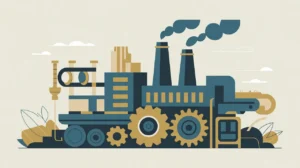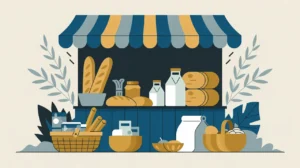Importance of Retail
Retail is a vital link between producers and consumers, shaping how goods and services reach households and communities. It drives economic growth, creates jobs, and influences consumer behavior and cultural trends. In international development, retail is critical for expanding market access, fostering entrepreneurship, and supporting livelihoods in both formal and informal economies. For nonprofits and social innovators, retail matters because it can connect local producers to broader markets and enhance community resilience. Its importance lies in making goods accessible while creating opportunities for inclusive growth.
Definition and Features
Retail refers to the sale of goods and services directly to consumers through physical stores, markets, or digital platforms. Its defining features include:
- Consumer Access: providing products for everyday needs and aspirations.
- Market Diversity: ranging from informal street vendors to multinational chains.
- Employment: offering jobs at multiple skill levels, especially for youth and women.
- Distribution Role: connecting supply chains to end-users.
How this Works in Practice
In practice, retail operates through supermarkets, small shops, open-air markets, and e-commerce platforms. For example, informal retail in many developing countries serves as the primary channel for food and household goods, while large retailers shape consumer choice and supply chain standards. NGOs and development agencies sometimes support local retailers by improving access to finance, training, or technology. Challenges include competition from global chains, barriers to formalization, and inequities in access to high-value markets.
Implications for Social Innovation
Retail has significant implications for social innovation because it influences how communities consume and how producers access markets. Innovations such as mobile payment systems, digital marketplaces, and fair-trade supply chains expand participation and equity. For proximate actors, inclusive retail systems provide opportunities to earn livelihoods and access essential goods. Retail is essential for linking production, consumption, and community development.







